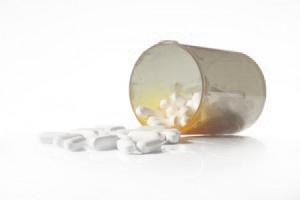 The Checotah Prescription Drug Disposal Event took was held on April 11th, 2015, at the Checotah Police Department located at 131 SW Main Street in Checotah, Oklahoma. Community residents were encouraged to participate in the safe and responsible disposal of unused, unwanted or expired medication.
The Checotah Prescription Drug Disposal Event took was held on April 11th, 2015, at the Checotah Police Department located at 131 SW Main Street in Checotah, Oklahoma. Community residents were encouraged to participate in the safe and responsible disposal of unused, unwanted or expired medication.
A Community Effort
The Checotah event was sponsored by the McIntosh County Coalition, Neighbors Building Neighborhoods, the Checotah Police Department and the McIntosh County Sheriff’s Office.
The McIntosh County Coalition for a Healthy Community was established in 2001. Also known as McCoCo, the organization strives to bring much-needed resources to Oklahoma communities. McCoCo focuses on issues facing Oklahoma youth in particular, working diligently to ensure that community youth have a healthy and safe place to grow-up.
Due to the rural nature of McIntosh County, its small towns and limited resources, McCoCo collaborates and partners with other organizations in its effort to provide more resources for communities and youth. Tobacco, alcohol and other drug prevention in one of its partnership priorities.
The organization Neighbors Building Neighborhoods (NBN) focuses its efforts on building coalitions, and coordinating community efforts addressing critical community issues. The NBN of Muskogee participated in the planning of the Checotah Prescription Drug Disposal Event.
The Checotah Police Department and the McIntosh County Sheriff’s Department focuses on promoting public safety and implementing policies which further that goal. Prescription Drug Take-Back events have proven very successful in safely removing volumes of prescription drugs from circulation, thus reducing human health and environmental risks.
Narconon Arrowhead, a local long-term drug rehabilitation and education center with a long history of community support, participated in the Checotah event. Director of Narconon Arrowhead, Robert “Bobby” Newman said, “We support and want to help with community efforts to safely remove unwanted, unused and expired prescription medication. Doing so minimizes the risk of prescription drug abuse and accidental overdose.”
The Success of Drug Take-Back Events
The National Prescription Drug Take-Back Day was first held in 2000, hosted by the U.S. Drug Enforcement Agency (DEA). After the final FDA-sponsored event in 2004, the responsibility for continuing these successful events fell upon local law enforcement agencies and partnering organizations.
The local community drug take-back events still use the FDA “Take-Back” guidelines for proper disposal of controlled substances.
While the results of the Checotah event weren’t immediately available, Newman said the results of another local community drug take-back event may predict the measure of success. “Eufaula, a nearby community has hosted a Prescription Drug Disposal Event for the last two years. The 2014 event took back 12 thousand pills, and 8,000 more were taken back for safe disposal at their February, 2015 event.”
“That is an enormous number of prescription pills out-of-circulation. All of us who work towards reducing the risk of substance abuse and its consequences are happy to see those kinds of results.”
Newman noted that the highly addictive prescription painkillers left sitting in home medicine cabinets pose a serious risk to youth, in particular. “Too many young people start their abuse of prescription painkillers with access to the home medicine cabinet, or that of another family member or friend”, said Newman.
“The risks and dangers are just too great, and a Prescription Drug Take-Back Event such as the one held here in Checotah is an effective community-based effort to reduce the potential for abuse, addiction and overdose.”
According to Newman, all the executives and staff of Narconon Arrowhead welcome any inquiries or questions regarding upcoming drug-take back events, drug prevention education presentations or materials, or drug and alcohol rehabilitation services.
“We are here to help Oklahoma communities and residents in any way we can. Drug prevention education and community efforts are vital activities we fully support.”